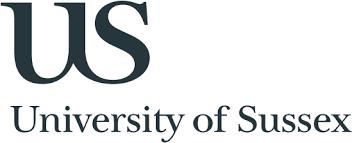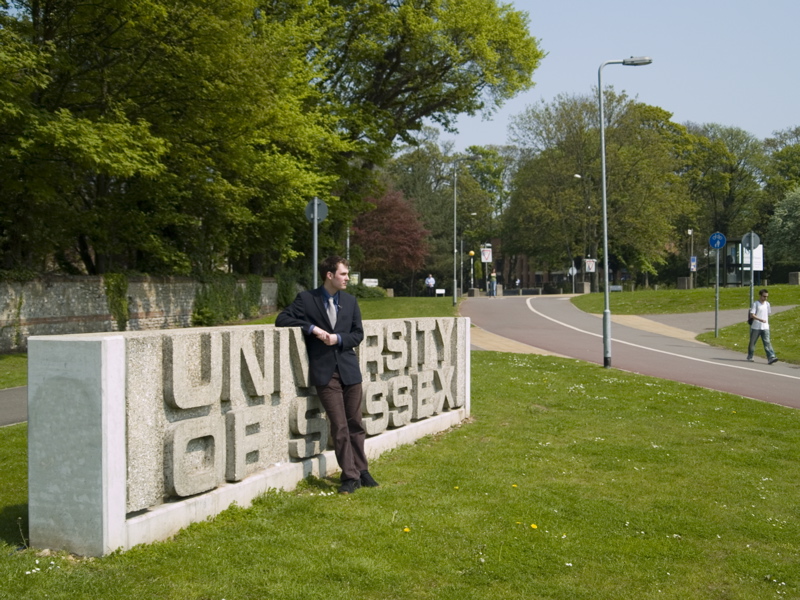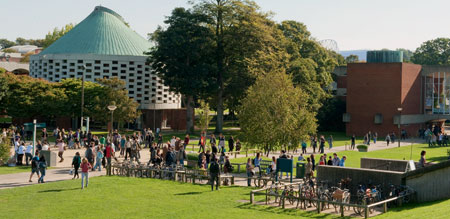The University of Sussex is a leading higher education and research institution near Brighton, in the south of England. Sussex was the first of the new wave of UK universities founded in the 1960s, receiving its Royal Charter in 1961.
Innovative research and scholarship
Sussex is a leading research university, as reflected in the 2014 Research Excellence Framework (REF). Over 75 per cent of research activity at Sussex is categorised as world leading (4*) or internationally excellent (3*) in terms of originality, significance and rigour.
Individual highlights of the REF 2014 results include:
Sussex History was the highest rated History submission in the UK for the quality of its research outputs
The Sussex English submission rose from 31st to 9th across the UK since the last research assessment exercise in 2008
84 per cent of the University’s research impact in Psychology was rated as the top possible grade, 4*
Sussex Geography had the most 4* rated research impact of any Geography submission across the UK.
Overall, the University was placed 36th (of multi-disciplinary institutions) by GPA.
Teaching and learning
The University of Sussex has over 14,000 students, of which over a third are postgraduates. Creative thinking, pedagogic diversity, intellectual challenge and interdisciplinarity have always been fundamental to a Sussex education.
Our goal is to deliver teaching and learning programmes that are informed by current research, are attractive to students from all socioeconomic and cultural backgrounds, and which deliver skills for life.
Our staff
Sussex has developed a reputation for innovation and inspiration, and attracts leading thinkers and researchers. We have over 2,100 staff, including around 1,000 teaching and research staff, of which, over 300 are research-only. We have counted three Nobel Prize winners, 14 Fellows of the Royal Society, 12 Fellows of the British Academy and a winner of the prestigious Crafoord Prize on our faculty.
International Sussex
From its foundation, Sussex has had an international perspective to its academic activities and its outlook. The University attracts staff and students to its campus from over 120 different countries across the world. Nearly a third of staff come from outside the UK.
Our research tackles major world issues, with leading areas of expertise such as climate change and development studies. The University has extensive links with many institutions worldwide, such as Peking University, National Taiwan University and the Harvard-Sussex programme.
Campus life
Sussex has one of the most beautiful campus locations in Britain. Situated in rolling parkland on the edge of Brighton, the campus combines award-winning architecture with green open spaces. The campus is surrounded by the South Downs National Park, but just a few minutes away from the lively city of Brighton & Hove.
Designed by Sir Basil Spence, the buildings that make up the heart of the campus were given listed building status in 1993. Falmer House is one of only two educational buildings in the UK to be Grade I listed in recognition of its exceptional interest.
Business and the community
Sussex has a long tradition of engaging with business and the community, which continues today through activities such as the Sussex Innovation Centre, public lectures and service to the community. Our goal is to help businesses and organisations in the region develop higher staff skill levels through training, and to stimulate innovation through partnership with other institutions outside Sussex to benefit the wider society.
The Sussex Innovation Centre provides support for the creation and growth of technology- and knowledge-based companies in Sussex. The Centre is now a thriving business environment for nearly 80 high-growth companies. Since its creation over 160 companies have been based at the Centre; their cumulative revenue is now over £250 million and the companies currently employ many hundreds of people in the local area.
Undergraduate:
Accounting and Finance
American Studies
Anthropology
Art History
Biochemistry
Biology
Biomedical Science
Business and Management
Chemistry
Cognitive Science
Computing and Digital Media
Criminology
Cultural Studies
Drama Studies
Ecology, Conservation and Environment
Economics
Education, Childhood and Youth
Engineering
English
English Language
Film Studies
Genetics
Geography
History
International Development
International Relations
Journalism
Languages
Law
Mathematics
Media and Communications
Media Practice
Medicine
Music
Neuroscience
Pharmacy
Philosophy
Physics and Astronomy
Politics
PPE (Philosophy, Politics and Economics)
Product Design
Psychology
Social Work, Wellbeing and Social Care
Sociology
Zoology
Graduate:
Animal behaviour
Anthropology
Art history
Astronomy and cosmology
Biochemistry and molecular biology
Business, management and finance
Cancer cell biology
Childhood and youth studies
Climate change and energy
Computing, artificial intelligence and IT
Conservation biology
Creative and critical writing
Development studies
Economics
Education and teaching
Engineering and design
English
English language and linguistics
English language teaching (ELT)
Evolutionary biology
Film studies
Gender studies
Geography
History
Human rights
International relations, security and global governance
Journalism
Law
Mathematics
Media and cultural studies
Media practice, documentary and filmmaking
Medicine and health studies
Migration studies
Music
Neuroscience
Philosophy
Physics
Politics
Psychology
Science, technology and innovation
Social and political thought
Social work and social care
Sociology



2014 © a2fairs. All Rights Reserved. powered by twopulse.com